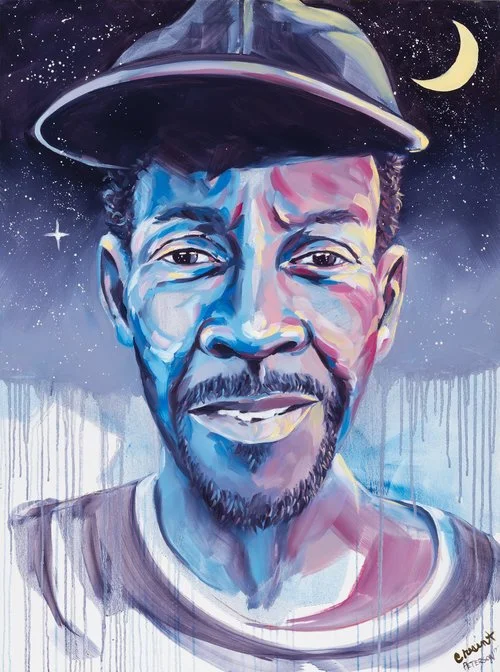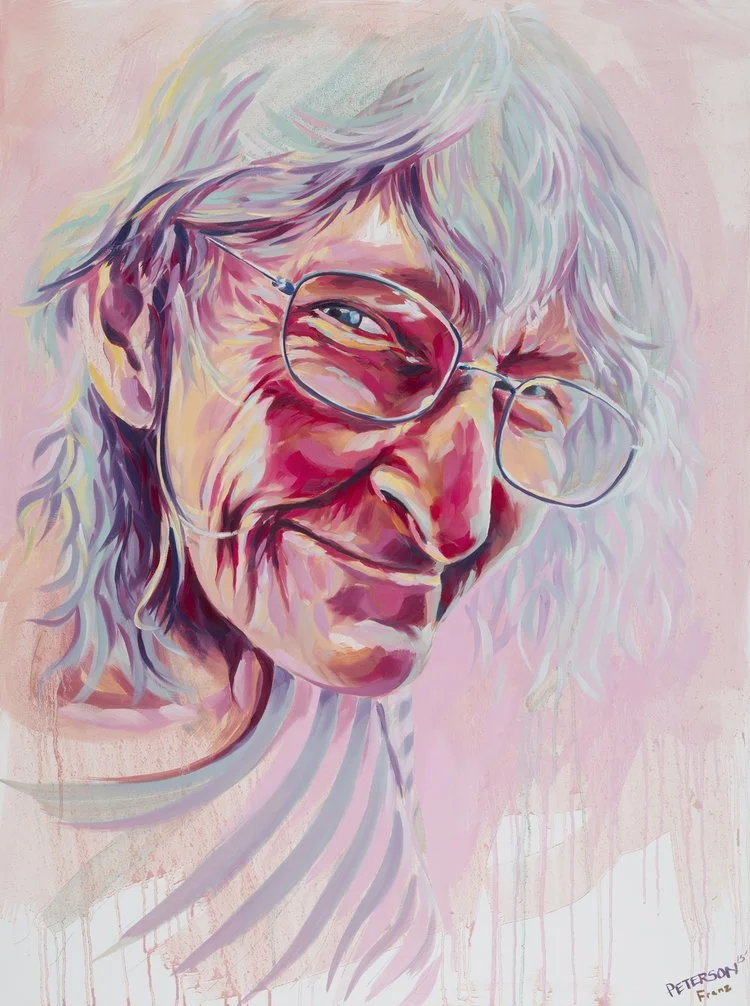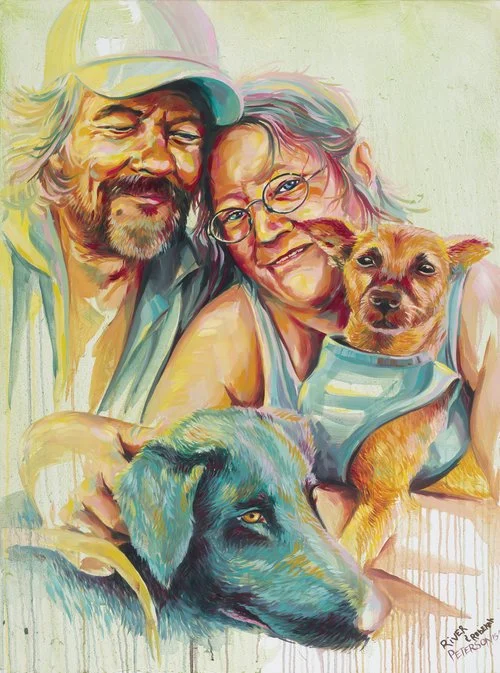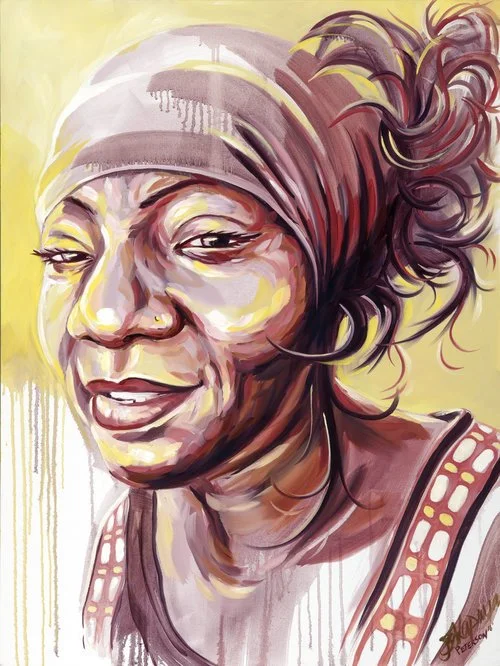No Walls Magazine:
Faces of Mankind
Brian Peterson believes that artists have a responsibility to provide a voice for the voiceless. With childlike curiosity, he steps into the personal stories of people who are highly visible but often ignored.
In 2015, Brian Peterson created Faces of Santa Ana, a project where he paints portraits of people in Santa Ana experiencing homelessness, sells them and uses the earnings to help his subjects.
Since then, the project has grown and laid the foundation for the wider-spanning Faces of Mankind, a collective of fine artists around the world painting the stories of marginalized populations in their communities.
Faces of Santa Ana ended a nine-year painting hiatus for Peterson, who had previously struggled with artist’s block.
“It has changed me,” Peterson said. “I’ve grown as a person and learned things about myself, I’ve learned things about humanity, I’ve learned things about my neighbors. I think I’m an artist because of this project.”
“Being an artist, for me, is like learning how to operate like a child.”
— Brian Peterson
Peterson’s work is built on and sustained by love. His subjects share their stories with him, and to Peterson, his relationships with them are inseparable from the painting process.
“I would never paint someone without meeting them,” he said, “that’d be hard for me.”
The paintings don’t always turn out as planned, but Peterson says he has learned to embrace the unexpected.
“Something is only a failure if you let it be,” Peterson said, “being an artist, for me, is like learning how to operate like a child — being curious and stepping into all different kinds of mediums with the confidence that if I’m just the full version of myself then things will come out great.”
After Peterson finishes each painting, he asks the subject to sign it right above his own signature because he believes their contribution is as significant as his own.
His subjects’ reactions are as varied as their stories; some start to cry, while others light up — some become introspective, while others instantly start talking.
In general, Peterson said, “emotions are usually pretty high.”
“You may see more of yourself in a homeless person than you think you would.”
— Brian Peterson
Peterson hopes Faces of Mankind will challenge the perceptions of onlookers and prompt them to view the homeless differently.
“I believe that an artist is responsible for sharing the narrative of the times they live in and to provide a voice for the voiceless. We have a responsibility to always share the voices of the marginalized.”
At the end of the day, he says homeless people are just that; people.
“You may see more of yourself in a homeless person than you think you would,” he said.




